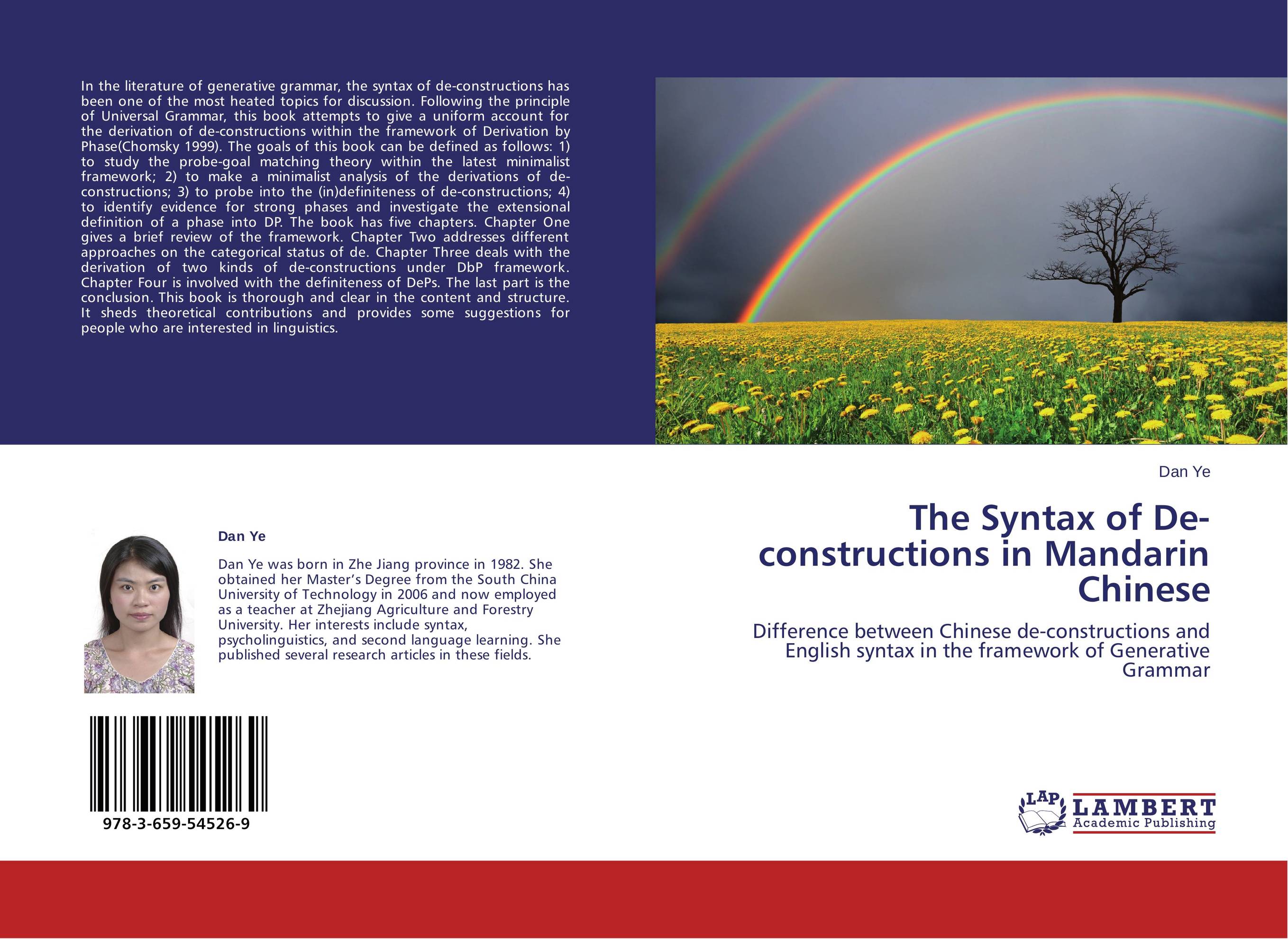| Поиск по каталогу |
|
(строгое соответствие)
|
- Профессиональная
- Научно-популярная
- Художественная
- Публицистика
- Детская
- Искусство
- Хобби, семья, дом
- Спорт
- Путеводители
- Блокноты, тетради, открытки
The Syntax of De-constructions in Mandarin Chinese. Difference between Chinese de-constructions and English syntax in the framework of Generative Grammar

В наличии
| Местонахождение: Алматы | Состояние экземпляра: новый |

Бумажная
версия
версия
Автор: Dan Ye
ISBN: 9783659545269
Год издания: 2014
Формат книги: 60×90/16 (145×215 мм)
Количество страниц: 92
Издательство: LAP LAMBERT Academic Publishing
Цена: 31605 тг
Положить в корзину
| Способы доставки в город Алматы * комплектация (срок до отгрузки) не более 2 рабочих дней |
| Самовывоз из города Алматы (пункты самовывоза партнёра CDEK) |
| Курьерская доставка CDEK из города Москва |
| Доставка Почтой России из города Москва |
Аннотация: In the literature of generative grammar, the syntax of de-constructions has been one of the most heated topics for discussion. Following the principle of Universal Grammar, this book attempts to give a uniform account for the derivation of de-constructions within the framework of Derivation by Phase(Chomsky 1999). The goals of this book can be defined as follows: 1) to study the probe-goal matching theory within the latest minimalist framework; 2) to make a minimalist analysis of the derivations of de-constructions; 3) to probe into the (in)definiteness of de-constructions; 4) to identify evidence for strong phases and investigate the extensional definition of a phase into DP. The book has five chapters. Chapter One gives a brief review of the framework. Chapter Two addresses different approaches on the categorical status of de. Chapter Three deals with the derivation of two kinds of de-constructions under DbP framework. Chapter Four is involved with the definiteness of DePs. The last part is the conclusion. This book is thorough and clear in the content and structure. It sheds theoretical contributions and provides some suggestions for people who are interested in linguistics.
Ключевые слова: de-construction, uninterpretable features, Derivation by Phase, Agree, probe-goal matching



